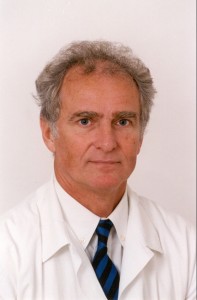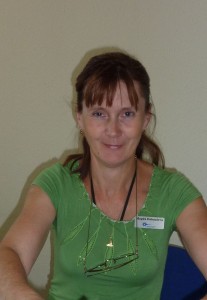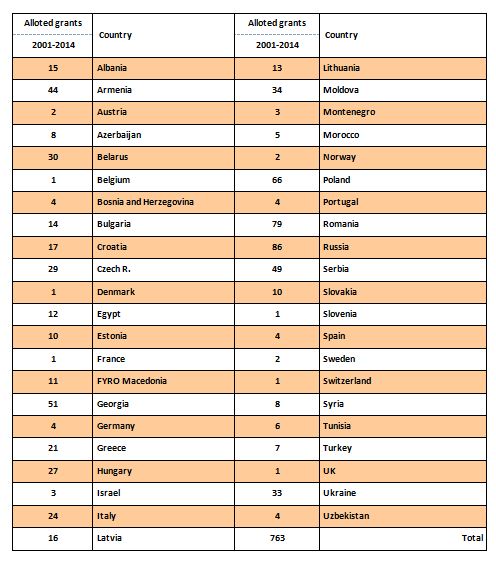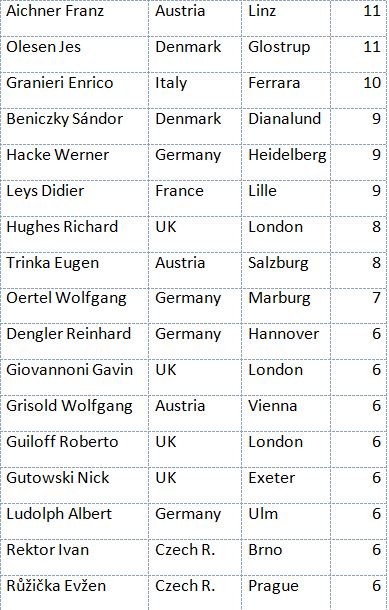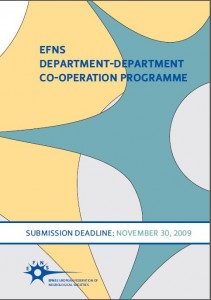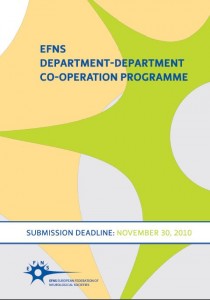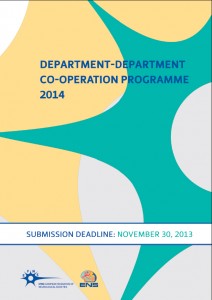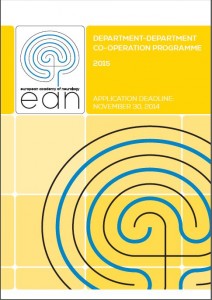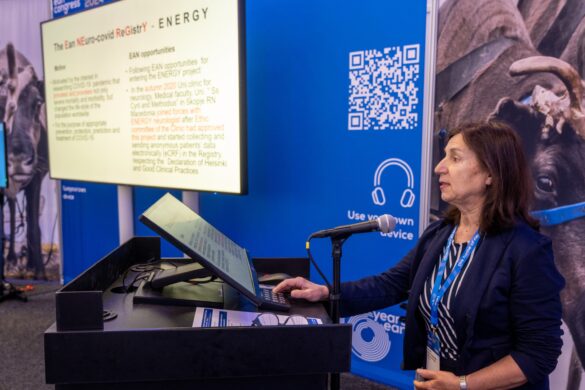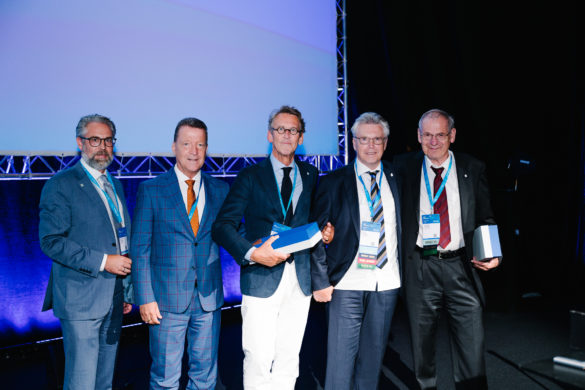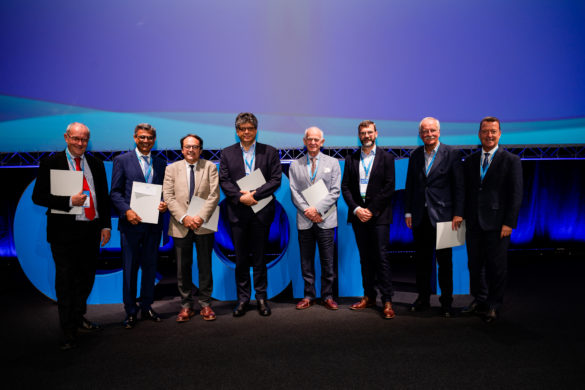With the advent of the European Academy of Neurology just established we have the pleasure to survey the past 14 years, when the Department to Department Cooperation Programme has been running under the agenda of the EFNS.
In 2001 the EFNS launched this project for young European neurologists aiming at increasing knowledge and getting practice in hosting departments of neurological excellence. The purpose of a grant of 1500.- Euro was to support accommodation and board expenses in the city of the grantee´s practice. Originally this programme was devoted to young neurologists from East European countries. Later it has been extended also for participants from Western European and Mediterranean countries. The amount was supposed to support a minimally 6-week long visit. Travel expenses were conceived to be paid by the visitor himself but the EFNS issued a regular reimbursement (of maximally 300.- Euro) for those participants, who would submit a report on their activity and experience after their return.
The applying candidates had to meet the following criteria: Neurologist – up to 40 years of age, from EFNS member countries, fluent in English or in the local language. Awardees from previous years were not eligible for repetition.
In the first years, the applicants were usually not yet experienced enough in contacting hosting departments in advance. The choice of the host was done by us in the EFNS branch office. We had about 150 collaborating departments/chairmen, who were ready to accept visitors for a 6-week long stay. To match the local languages with knowledge of the particular attendees, combined with their interest in neurological subspecialities was sometimes quite a hard task. Namely not all of our educational visits did run in English. The most frequently visited countries were Germany (181 visits), United Kingdom (108), France (88), Austria (78), and Italy (66). During several years we could observe an explosive rise of orientation throughout the neurological network in Europe, as well as an explosive improvement in knowledge of foreign languages. Consequently many of the applicants henceforward were able to contact their longed for place of visit by themselves. The negotiated and secured admission to a particular department became in the last time a priority for the grant and since 2014 it is becoming a prerequisite. Interestingly in the first years the number of applicants to this project was practically equal to the number of issued grants per year (20 – 40 …..80); growing interest during the years has been surpassing the offer more than twice in the last years. To decline quality applications was our great pain. The selection of successful applicants was done in cooperation with members of the Training and Education Committee.
Since the beginning of this project 763 grants had been alloted to young neurologists from 43 countries.
In this review we can observe a big prevalence of East European countries. Some of the participants have prolonged their stay, adding finances from their own pocket. Such longer visits could, in some cases, open collaborations in research. In general the success of the project was much dependent on the friendly willingness to help from the part of the hosting teams. And this was practically always the fact. We found indeed a pleasure in reading the final reports. They witnessed facts of perfect collegiality, on a backround of a rich and colourful itinerary, sometimes including also attendance to outer conferences or seminars. The vast majority of the grantees expressed their great satisfaction with gathering knowledge and friendly hospitality during their practice. Most hospitable departments provided even low budget dormitories and canteens.
The most frequent hosts of our grantees were the following chairmen:
Aware of quite a lot of troubles which the chairmen of the departments had to overcome (handling some problems with visa, with invitation letters etc.) we like to express great thanks to all the hosting departments, their heads and hundreds of other collaborators.
In total 28 countries (Armenia, Austria, Belgium, Bulgaria, Croatia, Czech Republic, Denmark, Estonia, Finland, France, Germany, Greece, Hungary, Ireland, Israel, Italy, Moldova, Norway, Poland, Portugal, Romania, Serbia, Slovakia, Slovenia, Spain, Switzerland, Turkey, United Kingdom) and their 150 hosting departments have offered their hospitality. We greatly appreciated their smooth collaboration in all administrative negotiations. We have experienced great changes in communications throughout Europe; neurological networks and the intensity of collaboration have grown-up tremendously and the level of common knowledge is completely elsewhere as it was at the beginning of this century. Amazing!
We believe that also in the following years, under the new patronage of the European Academy of Neurology (EAN) this very valuable exchange programme will be as successful as it was in the past.
Magda Dohnalová Prof. Pavel Kalvach
Programme Coordinator Training and Education Committee
EAN, Prague

